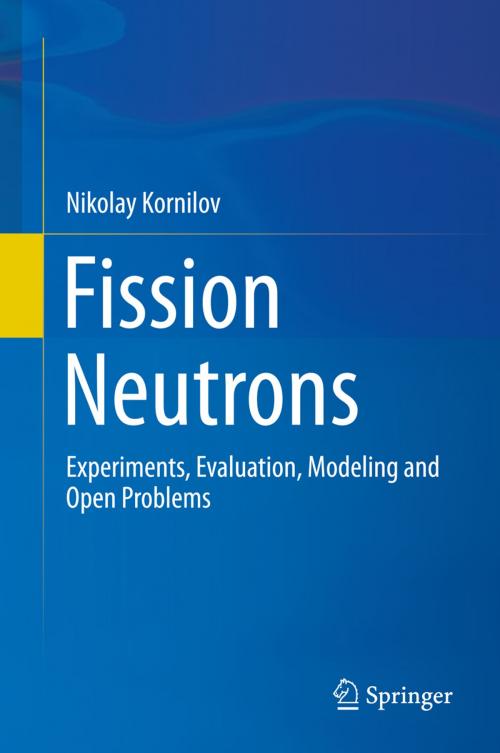Fission Neutrons
Experiments, Evaluation, Modeling and Open Problems
Nonfiction, Science & Nature, Science, Chemistry, Technical & Industrial, Physics, Nuclear Physics| Author: | Nikolay Kornilov | ISBN: | 9783319071336 |
| Publisher: | Springer International Publishing | Publication: | July 25, 2014 |
| Imprint: | Springer | Language: | English |
| Author: | Nikolay Kornilov |
| ISBN: | 9783319071336 |
| Publisher: | Springer International Publishing |
| Publication: | July 25, 2014 |
| Imprint: | Springer |
| Language: | English |
Although the fission of heavy nuclei was discovered over 75 years ago, many problems and questions still remain to be addressed and answered. The reader will be presented with an old, but persistent problem of this field: The contradiction between Prompt Fission Neutron (PFN) spectra measured with differential (microscopic) experiments and integral (macroscopic and benchmark) experiments (the Micro-Macro problem). The difference in average energy is rather small ~3% but it is stable and we cannot explain the difference due to experimental uncertainties. Can we measure the PFN spectrum with high accuracy? How may we compare results of different experiments to provide better accuracy? Are our traditional theoretical models correct? What can be done to solve the Micro-Macro problem in future? These questions are discussed in this monograph for the reader. The current work will be of interest to graduate students and researchers, particularly those working in nuclear and neutron physics.
Although the fission of heavy nuclei was discovered over 75 years ago, many problems and questions still remain to be addressed and answered. The reader will be presented with an old, but persistent problem of this field: The contradiction between Prompt Fission Neutron (PFN) spectra measured with differential (microscopic) experiments and integral (macroscopic and benchmark) experiments (the Micro-Macro problem). The difference in average energy is rather small ~3% but it is stable and we cannot explain the difference due to experimental uncertainties. Can we measure the PFN spectrum with high accuracy? How may we compare results of different experiments to provide better accuracy? Are our traditional theoretical models correct? What can be done to solve the Micro-Macro problem in future? These questions are discussed in this monograph for the reader. The current work will be of interest to graduate students and researchers, particularly those working in nuclear and neutron physics.















